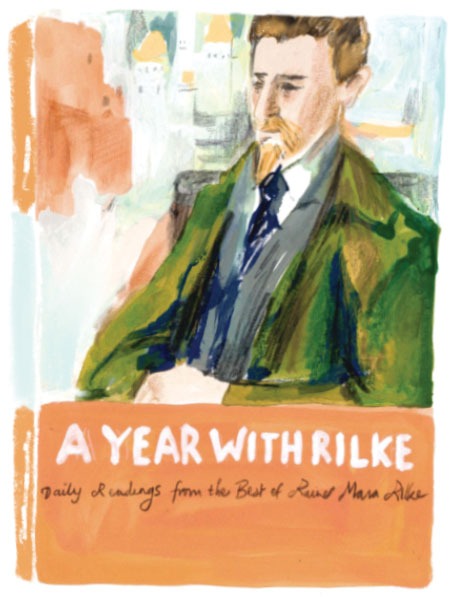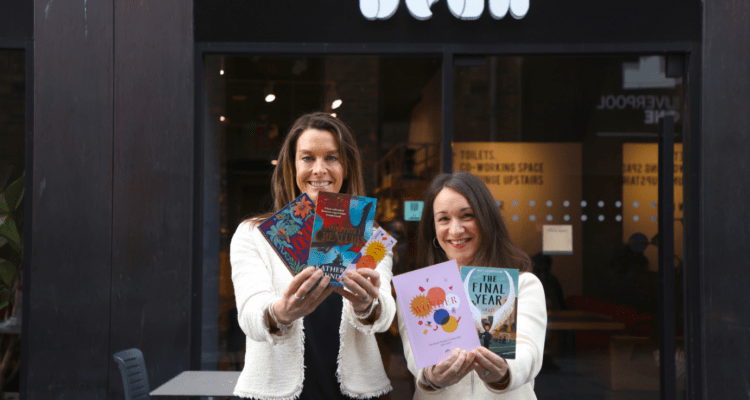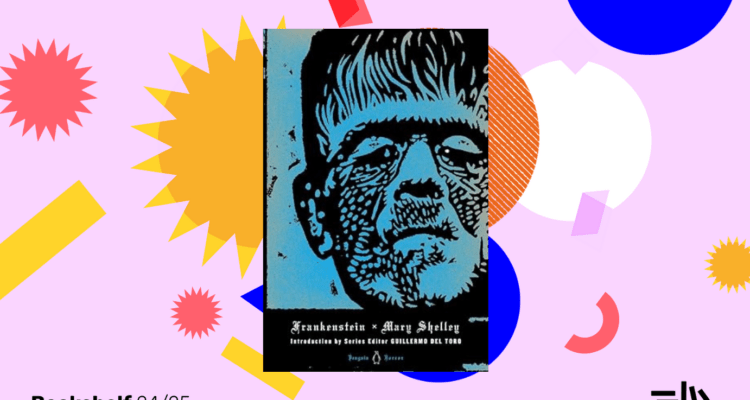From the Bookshelf: A Year With Rilke
Our 'From the Bookshelf' piece for January explores the collection A Year With Rilke, and was written by Lisa Spurgin.
The tasks that have been entrusted to us are often difficult. Almost everything that matters is difficult, and everything matters.
Rainer Maria Rilke, from Letters to a Young Poet (And Everything Matters, selection from January 18)

I have been a fan of Rainer Maria Rilke for some years now, ever since I first came across one of his poems featured in a novel that I was reading at the time. The words of the poem really resonated with me as they spoke to my situation at a time when I was weathering a personal storm, and they also found me when it came to the way I was feeling about the past as well as the present. Ever since then, I kept a look out for any other work by Rilke, and was always intrigued and moved in some way by the things I did find.
It was no surprise, then, that I should be drawn to this collection, which, as the title suggests, takes one writing of Rilke’s for each day of the calendar year. The excerpts featured in A Year with Rilke take in the breadth of Rilke’s work, which as well as poetry comprises pieces from his prose writing, letters and personal reflections from journals. It speaks to the quality of his writing that these more personal pieces contain so much richness within them, a universality of human thought, wonder and experience, which makes them feel all at once intimate but able to be identified with by readers who live lives that are in many cases very different from the one Rilke lived, which was only very short by our modern standards.
Rilke was Austrian, and wrote in the German language. His work has been translated into English in this collection by Joanna Macy and Anita Barrows, who also compiled the selections that are included. Reading work that is translated can cause us to have some reservations, perhaps, and certainly some questions about whether what is presented before us has some nuances of original meaning that have been lost in the work of being translated. Of course, we can’t know the full extent of this as readers, and perhaps only have the greater insight if we are fluent in both English and German, but the foreword to the collection gives a good indication of the depth of connection that Macy and Barrows have with Rilke’s work, and the closeness they feel not only with his work but with Rilke himself.
It is from this foreword that I have paused for a while, particularly when thinking about why A Year with Rilke should chime so much with the theme of this year’s Bookshelf, Weathering the Storm. I think the following puts it well, especially to those more difficult and challenging experiences of life, which Rilke presents so vividly but also with a curiosity that makes things that feel very hard seem, if only for a short time, to have beauty within them, too.
‘In the face of our collective condition of danger and pervasive loss, Rilke summons us to be present to our world in all its exquisite fragility. He reminds us that there is not a more important gift we can make to life on Earth. Knowing our own vulnerability is essential, both to the artist and to all who would awaken to the miracle of what is.
[…]
In the face of impermanence and death, it takes courage to love the things of this world and to believe that praising them is our noblest calling.’
One of Rilke’s longer works that I had previously read in full before coming to this book, and which features several times in A Year with Rilke, is the collection Letters to a Young Poet. It is a collection of ten letters that Rilke composed to Franz Xaver Kappus, a 19 year old officer cadet in the Austro-Hungarian army. Kappus had written to Rilke seeking advice on whether he should carry on with his military career or pursue his interest in writing poetry. Perhaps Kappus felt a particular affinity with Rilke given that he was the son of an army officer and had studied at a school linked to the academy that Kappus belonged to.
There are many helpful insights to be found in Letters to a Young Poet; one which is particularly powerful and speaks to this important idea of being present and living in the moment, as much as we are possibly able to do so at any one time, is included in A Year with Rilke. It’s a short extract which has stayed with me, and which I feel is a touchstone of sorts that I try to keep in mind when I inevitably feel bombarded with questions of my own.
I want to ask you, as clearly as I can, to bear with patience all that is unresolved in your heart, and try to love the questions themselves, as if they were rooms yet to enter or books written in a foreign language. Don’t dig for answers that can’t be given you yet: you cannot live them now. For everything must be lived. Live the questions now, perhaps then, someday, you will gradually, without noticing, live into the answer.
(Live the Questions, selection from February 18)
In reading this collection, we might find such moments that speak to us like words which we want to aim to live our own lives by. Other selections might seem further away from our own understanding, at least initially, but, with the re-reading which we always advocate as part of Shared Reading, can bring up something for us, which might change depending on the day and time we are coming to them.
I decided that I would make my way through A Year with Rilke by reading the piece selected for each date on the day itself, most often before I went to bed at night. In that sense, it can feel especially useful to come to the book at the start of the year, and go on a journey with it. However, the beauty of the collection is that it can be dipped into at any time in any way – there is no prescription for reading. In fact, I have found myself going ‘back in time’ and revisiting particular days in the collection months after first coming across them.
I’m inspired to look at what the selection is for the day on which I’m writing this piece. It is a poem called The Sybil, which is taken from the New Poems collection, published in 1907. It begins:
They called her old even long ago.
But she kept living on, coming down the same street
day after day. They began to reckon
her age in centuries, the way they do with forests.
Right away, I’m struck by quite a few questions, which I’d be really keen to explore with a Shared Reading group. Who are the ‘they’ that are being spoken of here? What about this ‘old’ woman – is she even a human, or something else, perhaps a mythical being? There’s also something in ‘But she kept living on’ that feels like it poses lots of wondering…is there something that is trying to get in the way of her living, perhaps, more than just the fact of her increasing age? This is only the first four lines, and yet there is so much to be taken in and wondered at. I find that is a recurring aspect of reading Rilke; he manages to pack so much, whole worlds, into often quite short and succinct poems.
The joy of this collection is not only that it is so varied, but also that, even though it is set in the order of the days of the year, it is not linear. From one day to the next we move between different types and eras of Rilke’s work, not staying for a chunk of time with one poetry collection or series of letters but jumping from one to the next in non-chronological order. Coming to it each day feels like being blessed with a surprise, something brand new and undiscovered to ponder over and explore, which could occupy us for anywhere from half an hour to much longer than that.
Like life itself, we come across different people, places, beings and emotions, and spend our time grappling with what each piece of writing leaves with us, before journeying onto the next. Is that not the way in which we face, and indeed, weather the storms that we all endure; through discovery and exploration, as well as being stoic and courageous in all that we experience.
Again the murmur of my own deep life grows stronger,
flowing along wider shores.
Things grow ever more related to me,
and I see farther into their forms.(from Where I Am Going, selection from March 6)
Spending A Year with Rilke was such an enriching experience for me, giving me lots to ponder throughout the twelve months. I wish the same journey for any reader who may decide to take up the same challenge, or who spend a month, week or even one day in Rilke’s company.
Share
Related Articles

Liverpool ONE unveils book corners in partnership with The Reader to help boost literacy across the city
Liverpool ONE has unveiled a collection of ‘reading corners’ in a bid to help boost literacy levels among local people.…

March’s Choice From The Reader Bookshelf
The Reader Bookshelf is a carefully curated collection of literature for adults and children, exploring a different theme each year, this year’s…

The Storybarn Selects… From The Reader Bookshelf
The Reader Bookshelf is a carefully curated collection of literature for adults and children, exploring a different theme each year, this year’s…


